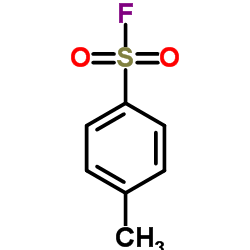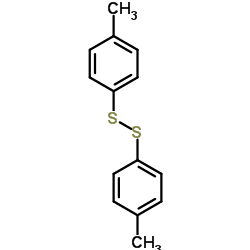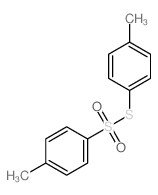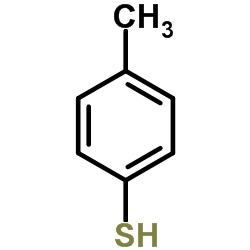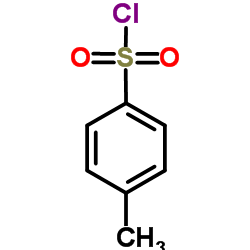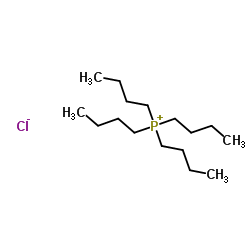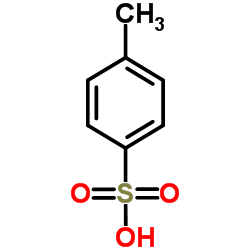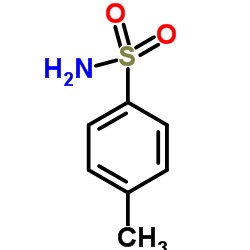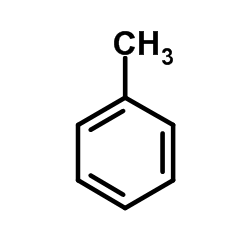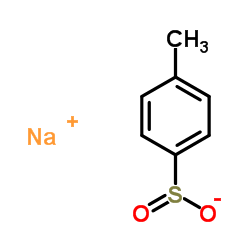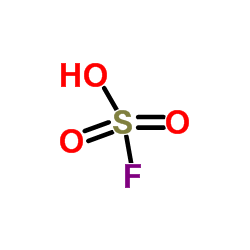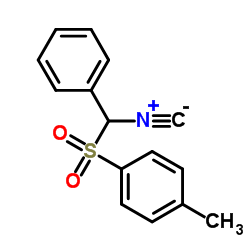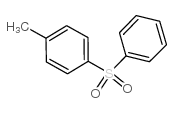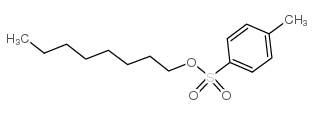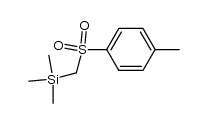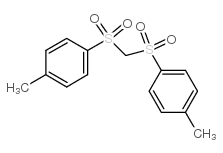455-16-3
| Name | p-toluenesulfonyl fluoride |
|---|---|
| Synonyms |
p-toluenesulfonyl fluoride
4-Methylbenzenesulfonyl fluoride MFCD00007421 EINECS 207-238-6 |
| Density | 1.3±0.1 g/cm3 |
|---|---|
| Boiling Point | 233.0±0.0 °C at 760 mmHg |
| Melting Point | 41-42 °C(lit.) |
| Molecular Formula | C7H7FO2S |
| Molecular Weight | 174.193 |
| Flash Point | 105.6±0.0 °C |
| Exact Mass | 174.015076 |
| PSA | 42.52000 |
| LogP | 2.74 |
| Vapour Pressure | 0.1±0.4 mmHg at 25°C |
| Index of Refraction | 1.503 |
Synonym:4-Methylbenzenesulfonyl Fluoride Section 2 - COMPOSITION, INFORMATION ON INGREDIENTS
Risk Phrases: 34 Section 3 - HAZARDS IDENTIFICATION EMERGENCY OVERVIEW
Causes burns.Moisture sensitive.Corrosive. Potential Health Effects Eye: Causes eye burns. May cause chemical conjunctivitis and corneal damage. Skin: Causes skin burns. May cause skin rash (in milder cases), and cold and clammy skin with cyanosis or pale color. Ingestion: May cause severe and permanent damage to the digestive tract. Causes gastrointestinal tract burns. May cause perforation of the digestive tract. May cause cardiac disturbances. May cause central nervous system effects. May cause systemic effects. Inhalation: May cause severe irritation of the respiratory tract with sore throat, coughing, shortness of breath and delayed lung edema. Causes chemical burns to the respiratory tract. Aspiration may lead to pulmonary edema. May cause cardiac abnormalities. May cause systemic effects. Central nervous system effects, which appear to predominate in acute cases are characterized by abnormal fatigue, memory difficulties and dizziness. Chronic: Effects may be delayed. Section 4 - FIRST AID MEASURES Eyes: Get medical aid immediately. Do NOT allow victim to rub eyes or keep eyes closed. Extensive irrigation with water is required (at least 30 minutes). Skin: Get medical aid immediately. Immediately flush skin with plenty of water for at least 15 minutes while removing contaminated clothing and shoes. Wash clothing before reuse. Destroy contaminated shoes. Ingestion: Never give anything by mouth to an unconscious person. Get medical aid immediately. Do NOT induce vomiting. If conscious and alert, rinse mouth and drink 2-4 cupfuls of milk or water. Inhalation: Get medical aid immediately. Remove from exposure and move to fresh air immediately. If breathing is difficult, give oxygen. Do NOT use mouth-to-mouth resuscitation. If breathing has ceased apply artificial respiration using oxygen and a suitable mechanical device such as a bag and a mask. Notes to Physician: Section 5 - FIRE FIGHTING MEASURES General Information: As in any fire, wear a self-contained breathing apparatus in pressure-demand, MSHA/NIOSH (approved or equivalent), and full protective gear. During a fire, irritating and highly toxic gases may be generated by thermal decomposition or combustion. Contact with metals may evolve flammable hydrogen gas. Containers may explode when heated. Runoff from fire control or dilution water may cause pollution. Extinguishing Media: Do NOT use water directly on fire. Use water spray to cool fire-exposed containers. Use foam, dry chemical, or carbon dioxide. Do NOT get water inside containers. Section 6 - ACCIDENTAL RELEASE MEASURES General Information: Use proper personal protective equipment as indicated in Section 8. Spills/Leaks: Vacuum or sweep up material and place into a suitable disposal container. Clean up spills immediately, observing precautions in the Protective Equipment section. Avoid generating dusty conditions. Provide ventilation. Do not get water inside containers. Section 7 - HANDLING and STORAGE Handling: Use only in a well-ventilated area. Minimize dust generation and accumulation. Do not breathe dust, vapor, mist, or gas. Do not get in eyes, on skin, or on clothing. Keep container tightly closed. Do not ingest or inhale. Do not allow contact with water. Discard contaminated shoes. Keep from contact with moist air and steam. Storage: Keep container closed when not in use. Corrosives area. Store protected from moisture. Section 8 - EXPOSURE CONTROLS, PERSONAL PROTECTION Engineering Controls: Facilities storing or utilizing this material should be equipped with an eyewash facility and a safety shower. Use adequate ventilation to keep airborne concentrations low. Exposure Limits CAS# 455-16-3: United States OSHA: 2.5 mg/m3 TWA (as F) (listed under Fluorides Personal Protective Equipment Eyes: Wear appropriate protective eyeglasses or chemical safety goggles as described by OSHA's eye and face protection regulations in 29 CFR 1910.133 or European Standard EN166. Skin: Wear appropriate protective gloves to prevent skin exposure. Clothing: Wear appropriate protective clothing to prevent skin exposure. Respirators: Follow the OSHA respirator regulations found in 29 CFR 1910.134 or European Standard EN 149. Use a NIOSH/MSHA or European Standard EN 149 approved respirator if exposure limits are exceeded or if irritation or other symptoms are experienced. Section 9 - PHYSICAL AND CHEMICAL PROPERTIES Physical State: Crystalline powder Color: white to light beige Odor: None reported. pH: Not available. Vapor Pressure: Not available. Viscosity: Not available. Boiling Point: 112 deg C @ 16.00mmHg Freezing/Melting Point: 41.00 - 42.00 deg C Autoignition Temperature: Not applicable. Flash Point: 105 deg C ( 221.00 deg F) Explosion Limits, lower: Not available. Explosion Limits, upper: Not available. Decomposition Temperature: Solubility in water: hydrolysis Specific Gravity/Density: Molecular Formula: C7H7FO2S Molecular Weight: 174.19 Section 10 - STABILITY AND REACTIVITY Chemical Stability: Stable under normal temperatures and pressures. May decompose on exposure to moist air or water. Conditions to Avoid: Incompatible materials, dust generation, moisture, excess heat, strong oxidants. Incompatibilities with Other Materials: Moisture, oxidizing agents, strong bases. Hazardous Decomposition Products: Carbon monoxide, oxides of sulfur, irritating and toxic fumes and gases, carbon dioxide, hydrogen fluoride gas. Hazardous Polymerization: Has not been reported. Section 11 - TOXICOLOGICAL INFORMATION RTECS#: CAS# 455-16-3: XT8050000 LD50/LC50: Not available. Carcinogenicity: P-Toluenesulfonyl Fluoride - Not listed by ACGIH, IARC, or NTP. Other: See actual entry in RTECS for complete information. Section 12 - ECOLOGICAL INFORMATION Section 13 - DISPOSAL CONSIDERATIONS Dispose of in a manner consistent with federal, state, and local regulations. Section 14 - TRANSPORT INFORMATION IATA Shipping Name: CORROSIVE SOLID, N.O.S.* Hazard Class: 8 UN Number: 1759 Packing Group: II IMO Shipping Name: CORROSIVE SOLID, N.O.S. Hazard Class: 8 UN Number: 1759 Packing Group: II RID/ADR Shipping Name: CORROSIVE SOLID, N.O.S. Hazard Class: 8 UN Number: 1759 Packing group: II Section 15 - REGULATORY INFORMATION European/International Regulations European Labeling in Accordance with EC Directives Hazard Symbols: C Risk Phrases: R 34 Causes burns. Safety Phrases: S 24/25 Avoid contact with skin and eyes. WGK (Water Danger/Protection) CAS# 455-16-3: No information available. Canada CAS# 455-16-3 is listed on Canada's NDSL List. CAS# 455-16-3 is not listed on Canada's Ingredient Disclosure List. US FEDERAL TSCA CAS# 455-16-3 is listed on the TSCA inventory. SECTION 16 - ADDITIONAL INFORMATION N/A |
CHEMICAL IDENTIFICATION
HEALTH HAZARD DATAACUTE TOXICITY DATA
|
| Symbol |


GHS05, GHS07 |
|---|---|
| Signal Word | Danger |
| Hazard Statements | H302 + H312 + H332-H314 |
| Precautionary Statements | P280-P305 + P351 + P338-P310 |
| Personal Protective Equipment | Eyeshields;Faceshields;full-face particle respirator type N100 (US);Gloves;respirator cartridge type N100 (US);type P1 (EN143) respirator filter;type P3 (EN 143) respirator cartridges |
| Hazard Codes | C:Corrosive; |
| Risk Phrases | R20/21/22;R34 |
| Safety Phrases | S22-S26-S27-S36/37/39-S45 |
| RIDADR | UN 3261 8/PG 2 |
| WGK Germany | 3 |
| RTECS | XT8050000 |
| Packaging Group | II |
| Hazard Class | 8 |
| HS Code | 2904909090 |
| Precursor 10 | |
|---|---|
| DownStream 10 | |
| HS Code | 2904909090 |
|---|---|
| Summary | HS:2904909090 sulphonated, nitrated or nitrosated derivatives of hydrocarbons, whether or not halogenated VAT:17.0% Tax rebate rate:9.0% Supervision conditions:none MFN tariff:5.5% General tariff:30.0% |
